Welding Compounds for Strong Metal Bonds
Abana Chapter
February 13, 2024
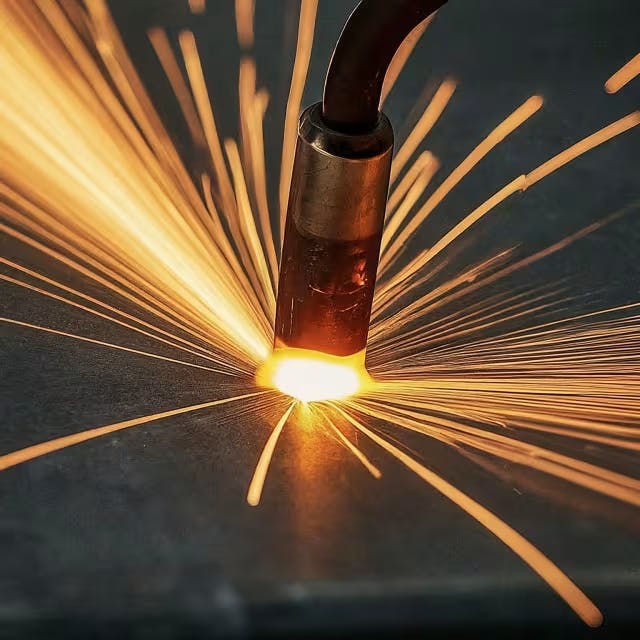
Welding compounds play a crucial role in achieving strong metal bonds for a variety of projects, from shop fabrication to repair works and educational endeavors. It's imperative to understand not just the high-strength welding compounds available but also the safety measures required when handling these potent materials. Knowing how to choose the right welding compound for your project while adhering to safety protocols can make the difference between a successful endeavor and facing potential hazards such as toxic fumes, burns, and electric shock.
Key Takeaways
Welding compounds are essential for creating strong metal bonds in various applications, including fabrication, repair, and education.
It's vital to select the appropriate welding compound for your specific project to ensure the best results and durability.
High-strength welding compounds offer significant benefits, such as improved joint integrity and resistance to environmental and mechanical stresses.
Proper application techniques are crucial for achieving maximum bonding strength when using welding compounds.
Adhering to safety measures while working with welding compounds can prevent injuries and health risks related to toxic fumes, burns, and electric shocks.
Familiarity with the types and uses of welding compounds, along with the implementation of recommended safety protocols, is key to successful welding projects.
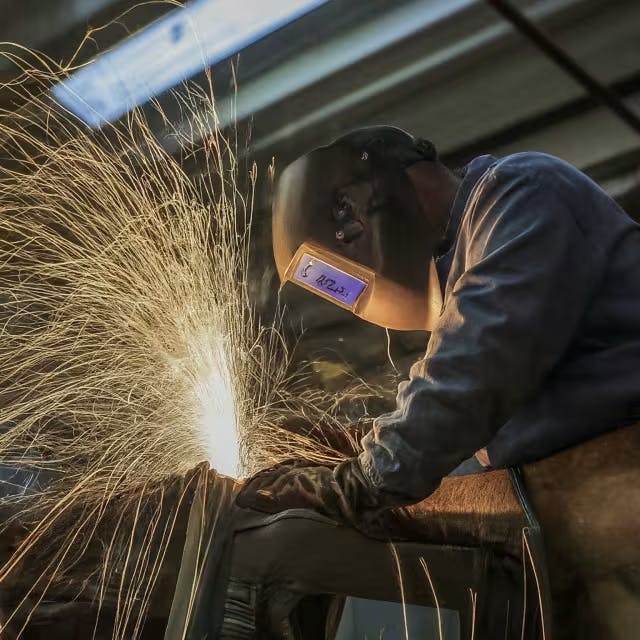
Understanding Welding Compounds and Their Uses
Welding compounds are crucial in creating durable metal bonds, essential for various industrial and DIY projects. They come in different types, each tailored to specific metals and applications, ensuring the best outcomes for your projects. Here are some of the most commonly used welding compounds:
Epoxy Resins: Known for their strong adhesion and chemical resistance, ideal for bonding metals in high-stress environments.
Acrylics: Fast-setting options suitable for quick repairs or projects with tight deadlines.
Polyurethanes: These provide robust, flexible bonds, making them perfect for metals that experience vibration or thermal expansion.
Silicone-Based Compounds: Excellent for high-temperature applications, offering both adhesive and sealant properties.
Selecting the right welding compound depends on the metal type, the bond's required strength, and the working conditions. For example, when dealing with precision tools and equipment, understanding the specifics, as highlighted in advanced metalworking tools & equipment, can guide you towards the right adhesive choice.
Moreover, combining the use of high-quality welding compounds with proper metalworking tools, as discussed in top metalworking tools for professional use, ensures not just strong bonds but also precision and longevity in your metal projects.
For specific projects, especially in custom metalwork or reparative tasks, knowing the types and uses of professional blacksmith tongs can also be highly beneficial. Professional blacksmith tongs types and uses offers insights into choosing the right tools to handle metals safely and effectively, enhancing the quality of your welding.
In summary, welding compounds play an essential role in metal bonding, with various options available for different materials and applications. Pairing these compounds with the right tools and knowledge ensures strong, durable bonds that stand the test of time.
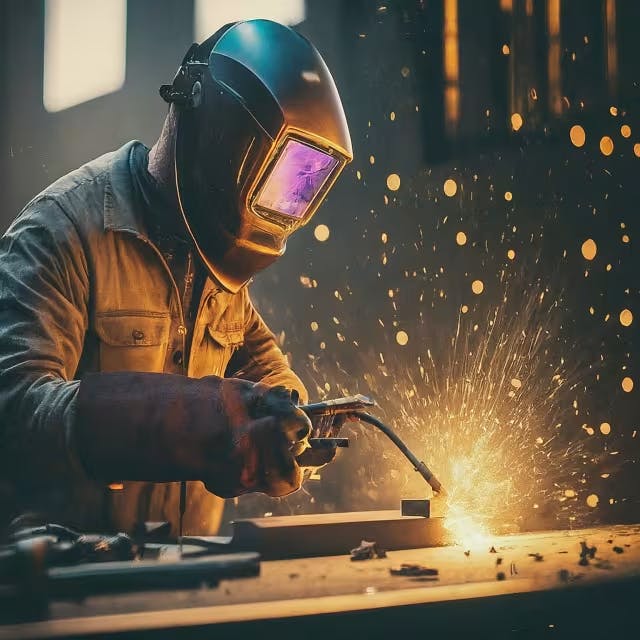
Choosing the Right Welding Compound for Your Project
Selecting the appropriate welding compound is crucial for achieving durable metal bonds in various projects. Whether for industrial, commercial, or DIY tasks, understanding the different types of welding compounds and their applications can significantly impact the outcome of your work.
Epoxy-based Compounds: Ideal for bonding metals that require high tensile strength. Epoxy compounds cure at room temperature and offer excellent chemical resistance.
Acrylic-based Compounds: Faster curing than epoxies, acrylics are great for projects requiring rapid assembly. They bond well to a wide range of metals and plastics.
Polyurethane Compounds: Known for their flexibility, polyurethanes are suitable for metals that experience thermal expansion or contraction. They provide a durable bond with good impact resistance.
Silicone-based Compounds: Perfect for high-temperature applications, silicone compounds maintain their adhesive properties in environments up to 600°F.
When choosing a welding compound, consider the metals you’re working with, the desired bond strength, and any environmental factors like temperature or moisture. For intricate metalworking projects, integrating advanced tools can elevate precision and efficiency. For insights into enhancing your metalworking capabilities with modern equipment, check out this article on Advanced Metalworking Tools & Equipment.
For professionals, integrating top-tier metalworking tools is key to achieving optimal results. Explore essential gear for professional use through this detailed guide on Top Metalworking Tools for Professional Use.
Remember, safety and precision are paramount in metalworking. Understand the essentials of using handheld punches and chisels through useful insights provided in this article on Handheld Punches and Chisels for Metalworking.
For achieving the perfect finish on your metal projects, knowing which flap discs and cut-off wheels to use is essential. Discover the best options for your needs by reading about Top Flap Discs and Cut-Off Wheels for Metalworking.
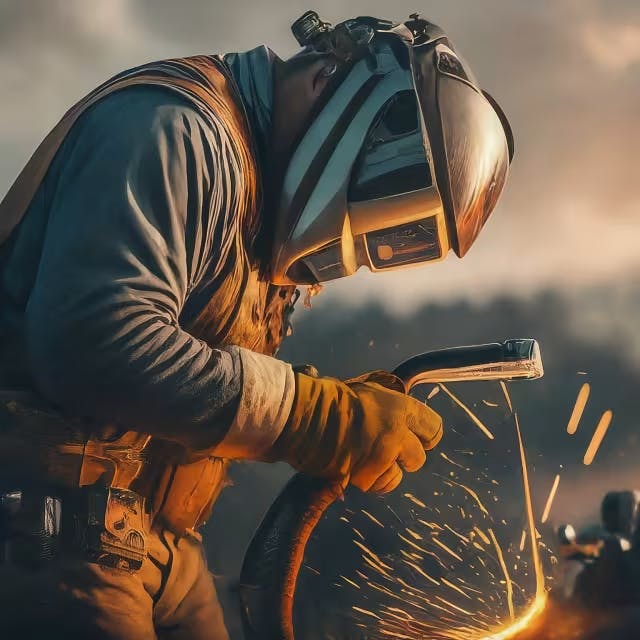
Advantages of High-Strength Welding Compounds
High-strength welding compounds are crucial for creating durable metal bonds in various industrial applications. Their primary benefit lies in their ability to produce joints with strength comparable to or exceeding that of the base metals being joined. This ensures that the integrity of the structure is not compromised, even under high stress or load conditions.
Enhanced Durability: Welds created with these compounds are highly resistant to wear, tear, and environmental factors, such as corrosion and extreme temperatures. This makes them ideal for use in harsh operating environments.
Cost-Effectiveness: Reducing the need for frequent repairs or replacements, high-strength welding compounds offer a long-term, cost-effective solution for many manufacturing needs.
Versatility: Compatible with a wide range of metals and alloys, they provide flexibility in application across various industries, from automotive to aerospace.
For professionals looking to optimize their metalworking processes further, incorporating advanced metalworking tools can significantly elevate precision and efficiency. Additionally, ensuring the finished product's surface is as strong and durable as its welds requires the right finishing techniques and supplies, including belt sanders and abrasives specifically designed for metal finishing.
To achieve the perfect blend of strength and finesse in metalworking projects, choosing high-strength welding compounds along with the best tools and finishing supplies is key. This approach not only ensures robust metal bonds but also enhances the overall quality and longevity of the final product.
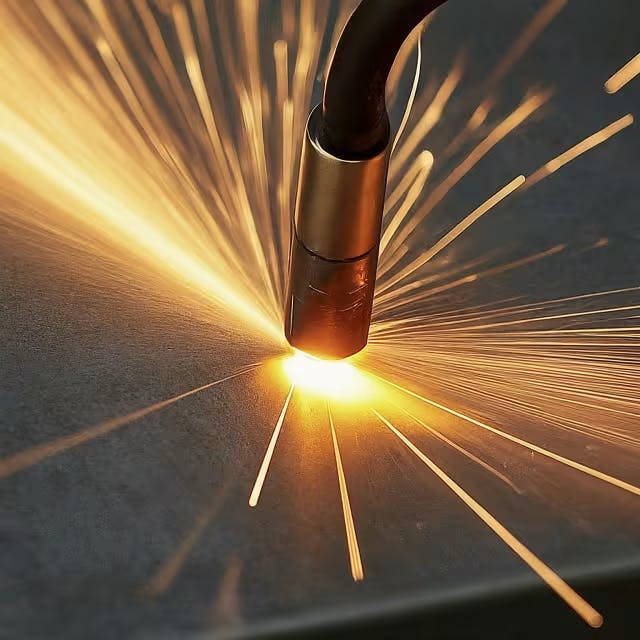
Tips for Applying Welding Compounds for Maximum Bonding
To ensure maximum bonding when using welding compounds, it's crucial to follow several practical steps:
Surface Preparation: Clean both surfaces thoroughly to remove any grease, oil, or other contaminants. A cleaner surface improves the bond strength substantially.
Applying Welding Compound: Use the right amount; too much or too little can affect the quality of the bond. Follow the manufacturer's recommendations for the best results.
Proper Curing Time: Allow adequate time for the compound to cure completely. Rushing this process can weaken the bond.
For more insight into optimizing your metalworking projects, understanding how advanced tools like CNC machines contribute to precision and efficiency is beneficial. High-quality bonds are achieved not just by the welding compounds but also by the precision in the fabrication process. More information on how these tools revolutionize metalworking can be found here.
Additionally, wearing appropriate safety gear and using recommended metalworking tools is crucial for achieving professional-grade results while ensuring your safety. Valuable recommendations on essential metalworking tools and safety equipment can be explored further here.
By following these guidelines and leveraging high-quality tools and equipment, you can achieve strong and durable metal bonds, enhancing the overall quality of your welding projects.
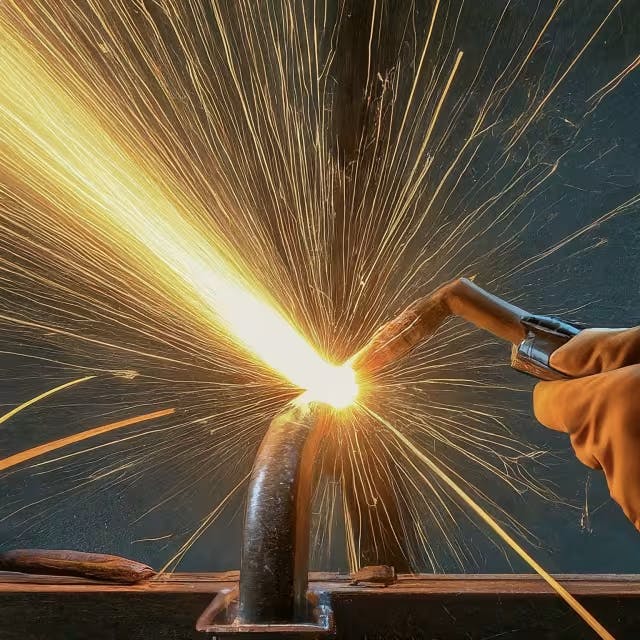
Safety Precautions When Working with Welding Compounds
When handling welding compounds to create strong metal bonds, prioritizing safety ensures not only the well-being of the worker but also the quality of the finished project. Adopting proper safety measures can significantly reduce the risk of accidents and injuries. Here are some crucial safety tips and guidelines:
Wear Appropriate Protective Gear: Essential safety equipment includes auto-darkening welding helmets, gloves, and protective clothing. These items shield you from sparks, spatter, and harmful radiation. For detailed information on essential gear, click here.
Ensure Ventilation: Welding processes can produce hazardous fumes. Working in a well-ventilated area or using a fume extraction system helps minimize inhalation risks.
Read and Understand MSDS: Material Safety Data Sheets (MSDS) for the welding compounds used should be thoroughly reviewed. These sheets provide vital information about the materials' properties, hazards, and safety precautions.
Keep Fire Extinguishing Tools Handy: Due to the high temperatures involved in welding, having fire extinguishing tools within reach is crucial for responding to any accidental fires.
Regular Equipment Checks: Before beginning any welding task, inspect all tools and equipment for damage or malfunction. This includes checking welding machines, power supplies, and personal protective equipment for any signs of wear or damage.
By attentively following these safety guidelines, you can maintain a secure environment while working with welding compounds. Remember, investing time in safety practices not only protects you but also ensures the integrity and longevity of your metalwork projects. For those looking into acquiring quality welding supplies for various projects, including those related to blacksmithing, explore this resource for insights into making informed decisions. Welding compounds play a pivotal role in establishing strong, durable metal bonds across various industries, demonstrating their indispensability from automotive construction to aerospace engineering. By choosing the appropriate compound, adhering to proper application techniques, and observing critical safety measures, professionals and hobbyists alike can achieve optimal bonding results. Ultimately, the success of metal bonding projects hinges on the informed selection and correct use of welding compounds, complemented by advanced metalworking tools to boost both quality and efficiency.
Frequently Asked Questions
What are the benefits of using epoxy resins in metal bonding projects?
Epoxy resins offer significant advantages in metal bonding projects, including strong adhesion that's effective across a range of metals and environmental conditions. They boast excellent chemical resistance, making them ideal for use in harsh, high-stress environments where other bonding methods might fail. Additionally, their ability to cure at room temperature and their compatibility with various metalworking tools enhance both the efficiency and the durability of the bond, ensuring long-lasting results without the need for frequent repairs or replacements.
How do silicone-based welding compounds enhance high-temperature applications?
Silicone-based welding compounds are esteemed for their exceptional performance in high-temperature applications because they retain their adhesive properties and structural integrity in environments up to 600°F. These compounds provide a durable bond that can withstand the stresses caused by thermal expansion and contraction, making them an ideal choice for projects exposed to high temperatures. Additionally, silicone welding compounds offer excellent sealant characteristics, further enhancing their utility in creating strong, long-lasting metal bonds.
What steps should be followed to ensure maximum bonding strength with welding compounds?
To ensure maximum bonding strength with welding compounds, it is essential to:
Thoroughly clean the surfaces to be bonded to remove any grease, oil, or contaminants.
Apply the welding compound according to the manufacturer's recommendations, ensuring the correct amount is used for optimal results.
Allow the compound to cure fully before testing the bond strength, adhering to the recommended curing time to ensure a strong, durable bond.
In what ways can advanced metalworking tools improve the efficacy of welding compounds?
Advanced metalworking tools can significantly improve the efficacy of welding compounds by ensuring precision in the application and the joining process, enhancing the bond's durability and strength. These tools allow for meticulous surface preparation, a crucial step for optimal adhesion, and precise control over the amount and placement of welding compounds. Additionally, they contribute to the correct curing environment, thus ensuring that the compounds achieve their maximum bonding potential. This integration of advanced tools with high-quality welding compounds leads to stronger, more reliable metal bonds.
Why is it important to consider the specific properties of welding compounds for different metal types?
Considering the specific properties of welding compounds for different metal types is imperative because:
Different metals react uniquely to each compound, influencing the bond's strength, durability, and resistance to environmental factors.
Choosing the incorrect compound can lead to weak bonds, corrosion, or failure under stress.
Proper selection ensures the longevity of the weld, cost-effectiveness by reducing repairs and replacements, and compatibility across a wide range of applications.
How can safety measures impact the quality and durability of metal bonds created with welding compounds?
Safety measures directly impact the quality and durability of metal bonds created by welding compounds by reducing the risk of accidents and ensuring the consistent application of these compounds. Proper safety gear and practices protect the worker, allow for precise compound application, and ensure the integrity of the welding environment. Adhering to guidelines on safety equipment usage, ventilation, and handling welding compounds according to Material Safety Data Sheets (MSDS) leads to stronger, more resilient metal bonds, enhancing the project's overall quality and durability.


